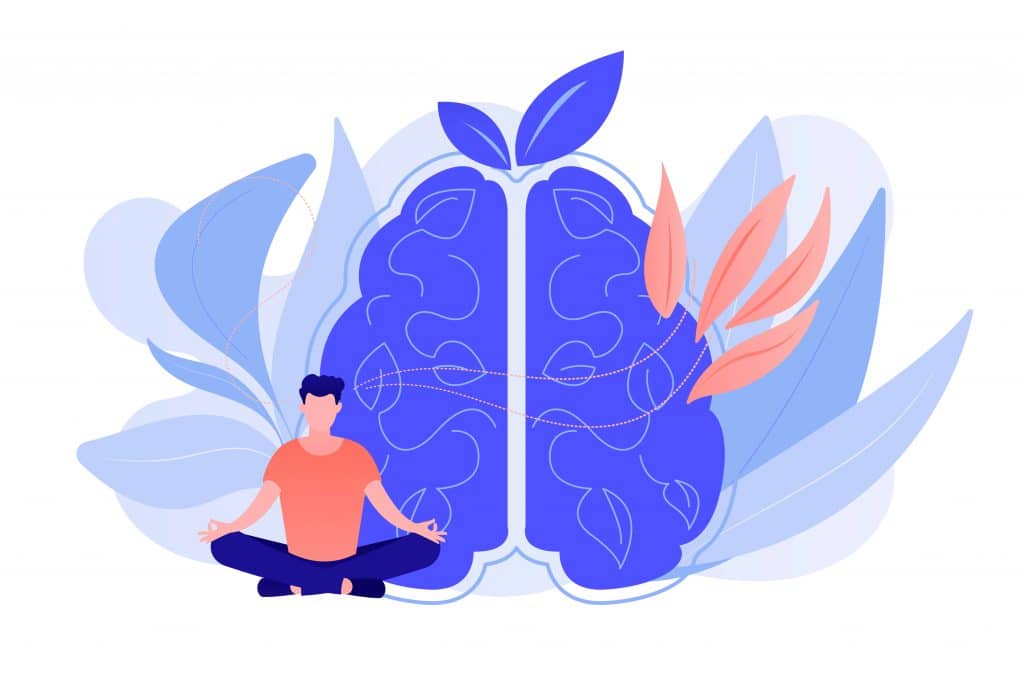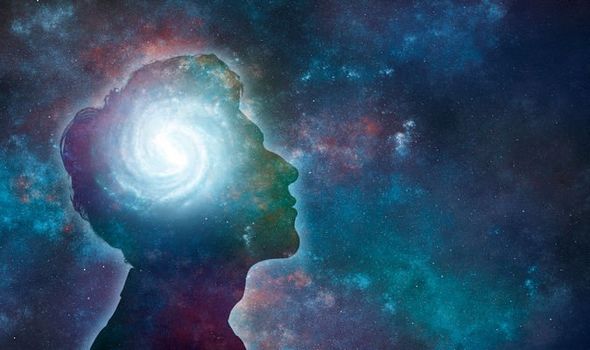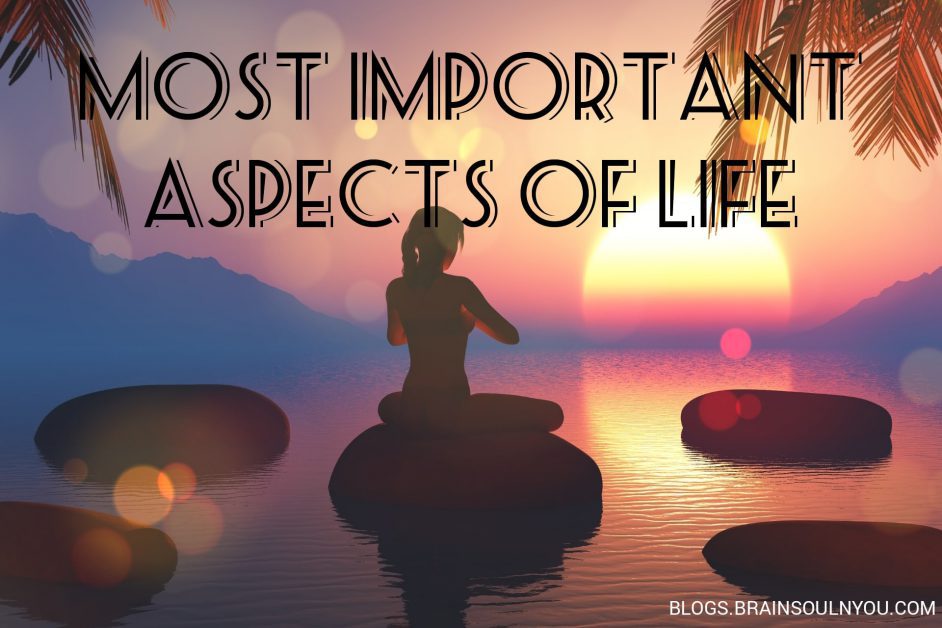The things that are very important to us, we often ignore those things. Think about what is very important in our life and if it does not seem, then what will happen to them. This is the reason that the most important aspects of life are Breath (oxygen), Mind, and Consciousness which are not seen and we ignore them. Three things come with our birth and go away with death. And these three things together with the body make your life complete. Meaning without them the body is just a dead body.
3 Most Important Aspects of Life
Here are 3 most important aspects of life:
Breath
The first aspect of life is Breath(oxygen). But do you know that most people do not know how to breathe properly? You can say more than 95% of people don’t about it. Now you will say what is the need of any art to breathe. Yes, one who has learned to control his breath will never get sick, and he will have no stress or depression.

Breath is a fundamental aspect of human life and plays a crucial role in our physical and mental well-being.
Here are some key points about the significance of breath:
Vital Life Force: Breath is often referred to as the “life force” or “prana” in various traditions. It is the essential process through which oxygen enters our body and is transported to every cell, nourishing our organs and tissues. It also helps eliminate carbon dioxide, a waste product of cellular metabolism.
Oxygenation and Energy: Oxygen is vital for the proper functioning of our body and brain. Deep, slow, and mindful breathing can increase oxygen intake and improve circulation, promoting energy levels, mental clarity, and overall vitality.
Stress and Relaxation: Conscious breathing techniques can help regulate the body’s stress response. Slow, deep breaths activate the parasympathetic nervous system, promoting relaxation, reducing stress, and lowering blood pressure and heart rate.
Mind-Body Connection: Breath is intimately connected to our emotional and mental states. Shallow, rapid breathing is often associated with stress, anxiety, or panic, while deep, rhythmic breathing is linked to calmness, focus, and a sense of well-being. By consciously adjusting our breath, we can influence our emotional and mental states.
Mindfulness and Present Moment Awareness: Focusing on the breath is a common technique in mindfulness practices. Bringing attention to the sensations of the breath, such as the rise and fall of the abdomen or the feeling of air entering and leaving the nostrils, helps anchor us in the present moment and cultivate mindfulness.
Breathwork and Healing Practices: Various breathwork techniques, such as pranayama in yoga or specific breathing exercises, are used in healing modalities to address specific physical, emotional, or energetic imbalances. These practices can promote relaxation, emotional release, increased energy, and overall well-being.
Mind-Body Integration: Breath serves as a bridge between the conscious and unconscious aspects of our being. By consciously directing our breath, we can influence our physiological responses, regulate our emotions, and cultivate a sense of harmony between mind, body, and spirit.
Accessible Tool for Self-Care: One of the benefits of breath is its accessibility. We can practice breath awareness and intentional breathing techniques anytime, anywhere, as a simple and effective self-care tool to promote relaxation, reduce stress, and enhance well-being.
By cultivating mindful awareness of our breath and incorporating intentional breathing practices into our daily lives, we can harness its potential to improve our physical, mental, and emotional well-being.
How to Breathe Properly?
The problem is that most people don’t know how to breathe. Let me share with you the most effective way to breathe to cleanse your system. You should breathe in this ratio: Inhale one count, hold four counts and exhale two counts. If you inhaled for four seconds, you would hold for sixteen and exhale for eight seconds. Inhale by the nose and exhale by mouth.
Why exhale for twice as long as you inhale? That’s when you eliminate toxins via your lymphatic system. Why hold four times as long? That’s how you can fully oxygenate the blood and activate your lymphatic system. When you breathe, you should start from deep in your abdomen, like a vacuum cleaner that’s getting rid of all toxins in the blood system.
There is no food or vitamin pill in the world that can do what excellent breathing patterns can do for you. Whether you do exercise or not at least take 10 deep Breaths, in the above ratio, at least three times a day.
Mind
The second aspect of life is Mind, the same situation with it. 99% of people do not know how our mind works. What are its powers and what can we do with our mind.

In our body, there are two things, Brain And Mind. Most people have confusion that the mind and brain are the same things. But the brain is the Hardware part and on the other hand, the mind is the software part.
The mind has two functions: The Conscious mind which monitors present events and the Subconscious mind which contain Behaviour Pattern and work accordingly. The power of the subconscious mind is controlling the life of everyone in the Universe.
Mind is like a garden and you are a gardener. You are planting seeds of thoughts in your mind every day. As you sow in your mind, you reap in your body and environment. To understand more how the mind works, you need to understand what is Subconscious mind and the Conscious mind are.
The mind is a complex and fascinating aspect of human consciousness and cognitive function. It encompasses our thoughts, perceptions, emotions, memories, beliefs, and imagination.
Here are some key points about the mind:
Conscious and Unconscious Mind: The mind can be divided into conscious and unconscious aspects. The conscious mind refers to our immediate awareness and cognitive processes that we actively engage in. The unconscious mind consists of thoughts, emotions, and memories that are not currently in our conscious awareness but still influence our behavior and experiences.
Cognitive Processes: The mind is responsible for various cognitive processes, including perception, attention, memory, language, reasoning, problem-solving, and decision-making. These processes allow us to interpret and understand the world, make judgments, and engage in complex mental tasks.
Emotions and Feelings: The mind plays a crucial role in generating and experiencing emotions and feelings. Emotions are complex psychological and physiological responses to stimuli, while feelings refer to the subjective experience of those emotions. The mind processes and gives meaning to emotional experiences, influencing our overall emotional well-being.
Thoughts and Beliefs: The mind generates thoughts, which are mental processes involving ideas, images, and internal dialogue. Thoughts shape our perception of reality and influence our behavior and emotions. Beliefs, which are deeply held thoughts and convictions, play a significant role in shaping our attitudes, values, and actions.
Consciousness and Awareness: The mind is closely linked to consciousness and self-awareness. Consciousness refers to our subjective experience and awareness of ourselves, others, and the world around us. The mind allows us to reflect on our thoughts, feelings, and experiences, giving us a sense of self.
Mind-Body Connection: The mind and body are intricately connected, influencing each other’s functioning. Psychological and emotional states can have an impact on physical health, while physical sensations and conditions can affect our mental and emotional well-being. Practices such as meditation, mindfulness, and relaxation techniques aim to foster a harmonious mind-body connection.
Plasticity and Change: The mind has the remarkable ability to change and adapt. Neuroplasticity refers to the brain’s capacity to reorganize and form new neural connections based on experience and learning. This means that our thoughts, behaviors, and experiences can shape and reshape our minds over time.
Consciousness
The third aspect is consciousness (consciousness) which we also call the soul. Soul and consciousness are the same things. Consciousness refers to our subjective awareness and experience of ourselves, the external world, and our mental processes. It is the state of being aware and perceiving, encompassing our thoughts, feelings, sensations, and perceptions.

There will probably be less than 1% of people who know what consciousness is and what are its levels. And how you can raise consciousness levels. And to tell you a bitter truth, people are not even willing to know about them.
In the earlier Gurukul system, these things were taken care of and these things are taught even today where monasteries exist. But the modern education system considers them all useless things. You have to make them genius. So this boring subject is not necessary for you. The truth is that nothing is possible without these three things.
Here are some key points about consciousness:
Subjective Experience: Consciousness is inherently subjective, as it involves our personal and unique experience of the world. It is “what it is like” to be aware and have conscious experiences from our own perspective.
Levels of Consciousness: Consciousness can vary in intensity and depth. It ranges from basic wakefulness and awareness to more focused states of attention, altered states of consciousness (e.g., meditation or hypnosis), and even states of unconsciousness (e.g., deep sleep or anesthesia).
Self-Awareness: One essential aspect of consciousness is self-awareness, the ability to perceive and reflect upon oneself as an individual separate from others. Self-awareness allows us to have a sense of identity, introspection, and awareness of our thoughts, emotions, and actions.
Perceptual Awareness: Consciousness involves the ability to perceive and interpret sensory information from the external world. It includes our perception of visual, auditory, tactile, olfactory, and gustatory stimuli, allowing us to make sense of our surroundings.
Cognitive Processes: Consciousness is closely tied to cognitive processes such as attention, memory, reasoning, problem-solving, and decision-making. These processes involve conscious awareness and contribute to our ability to engage with the world and engage in complex mental activities.
Altered States of Consciousness: Consciousness can be altered by various factors such as meditation, hypnosis, psychedelic substances, sleep deprivation, or certain medical conditions. Altered states of consciousness may involve changes in perception, time distortion, heightened or diminished awareness, and different subjective experiences.
Philosophical and Scientific Inquiry: Consciousness has been a subject of philosophical inquiry and scientific study for centuries. Questions about the nature of consciousness, its origins, and its relationship to the brain and physical reality continue to be explored by philosophers, psychologists, neuroscientists, and cognitive scientists.
Other Aspects of Life
Aspects of life can refer to different domains or dimensions that contribute to our overall well-being, growth, and fulfillment. While the specific aspects can vary depending on individual perspectives and cultural contexts, here are some commonly recognized aspects of life:
Physical Well-being
This aspect encompasses our physical health, fitness, and overall vitality. It involves taking care of our bodies through proper nutrition, regular exercise, adequate rest and sleep, preventive healthcare, and avoiding harmful behaviors.
Emotional and Mental Well-being
This aspect focuses on our emotional and mental health. It includes managing stress, understanding and regulating emotions, developing resilience, nurturing positive self-esteem and self-worth, and seeking support when needed. Emotional and mental well-being involves cultivating positive emotions, coping with challenges, and fostering a healthy mindset.
Relationships and Social Connections
This aspect emphasizes the quality of our relationships and social interactions. It involves building and maintaining meaningful connections with family, friends, partners, and communities. Developing effective communication skills, practicing empathy, fostering healthy boundaries, and nurturing supportive relationships contribute to this aspect of life.
Career and Professional Growth
This aspect relates to our work life and the pursuit of meaningful employment or professional endeavors. It includes finding fulfillment and satisfaction in our careers, setting and achieving professional goals, continuous learning and development, work-life balance, and finding a sense of purpose in our chosen field.
Personal Development and Growth
This aspect focuses on self-improvement, personal growth, and self-actualization. It involves setting and pursuing personal goals, engaging in lifelong learning, expanding knowledge and skills, exploring new interests and hobbies, and cultivating a sense of purpose and meaning in life.
Financial Well-being
This aspect pertains to our financial stability, security, and responsible management of resources. It involves budgeting, saving, investing wisely, and making informed financial decisions that align with our goals and values.
Spiritual and Existential Exploration
This aspect encompasses the search for meaning, purpose, and connection to something greater than oneself. It involves exploring personal beliefs, values, and spirituality, engaging in practices such as meditation, mindfulness, or religious rituals, and finding a sense of inner peace and alignment with one’s values.
Recreation and Leisure
This aspect emphasizes the importance of relaxation, leisure activities, and hobbies. Engaging in activities that bring joy, pleasure, and rejuvenation, such as hobbies, sports, travel, creative pursuits, or spending time in nature, contributes to overall well-being and enjoyment of life.
We need to know and give importance to all three aspects of life. You may find these all boring at first, but after understanding them, they will not like anything else.
Love,
Saurabh Goel
Read more blogs also on Ancient Secrets of Breathing Science, What is Subconscious Mind? What is Consciousness?
Saurabh Goel
He is the Founder and CEO of the Training and Counselling Company ‘Brain Soul & You’. He is an NLP Wellness Coach, Life Coach, Brain analyst, and Trainer for Education, Corporate, and Entrepreneurship. For more than 7 years, he delivered presentations on entrepreneurship, mind programming, and motivation. He did his B.tech in IT and later choose to be a successful psychologist. He is helping people in various ways through his counseling and training sessions.


